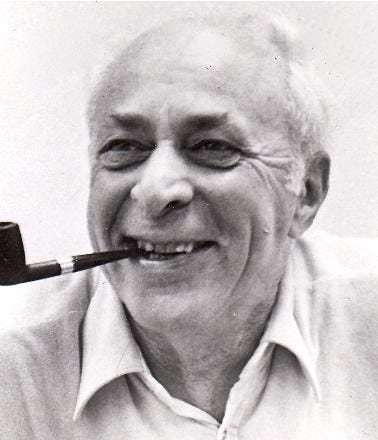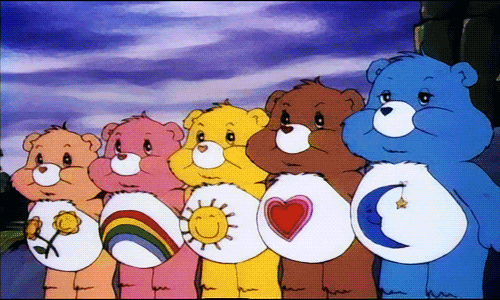You might have heard—there’s been a new generation of the “reading wars.” There are a lot of dynamics here, but let’s just say that for many decades, districts have spent a lot of money and put a lot of faith in an approach to reading that was missing a critical component of how the majority of children actually learn to read. It’s unconscionable and also very typical of a complex system that doesn’t easily course correct. (Here’s a good listen on it if you’re interested in a more complete explanation.)
One of the subtexts, pun intended, that I’ve found fascinating here is that no one involved really thinks of themselves as having the power. Parents blame the teachers—shouldn’t they know how to teach reading? Teachers blame the principals—they’re the ones who lead the schools! Principals blame the district reps who choose the curriculum. The district reps blame the publishers of the curriculum, who they assume do due diligence. And on and on and on…
This is not just about the “reading wars,” of course. If you look for it, you will see this dynamic show up everywhere. Your boss wishes he could stop communicating outside of business hours or get better benefits for his employees, who are also caregivers, but alas, it’s (somehow?!) out of his control. Your neighbor, a diehard progressive White mother, will still strategize her kid’s way out of your “failing” (read: majority Black) neighborhood public school because she’s just one woman—what power does she have in the face of huge, unjust systems? (In fact, quite a lot, as Elizabeth McRae argues, White women have been the “constant gardeners” of segregation while feigning innocence). Your pastor preaches Jesus’ example but doesn’t have the power to welcome newcomers into the church because the language and cultural barriers are prohibitive. Your friend group gossips behind one another’s back and you kind of hate it, but also it’s fun and you’ve been doing it forever so what power do you really have to shift the culture?
It’s wild—how we would rather feel powerless in so many situations than admit that we are afraid (of change, of ostracization, of rocking the boat, of appearing confused). It seems like those of us who have been historically privileged—White, male, able-bodied, heterosexual—are particularly slow to admit our own power. When I’ve tried to learn more about this phenomenon, I’ve found a lot of psychological research about how hard it is for people to admit when they’re wrong. And that’s adjacent to what I’m interested in, but not quite it.
I’m actually more interested in the ways in which we play small and powerless. Is it about evading accountability? Lack of imagination? Guilt? Is it about how hard it can be to even fully conceptualize the systems and cultures we’re a part of, much less change them? Or maybe it’s about control…
My friend, who is a “feelings doctor,” turned me onto the concept of “locus of control”—the degree to which people believe that they, as opposed to external forces (beyond their influence), have control over the outcome of events in their lives. It’s best understood as a spectrum by which you might be someone who tends to feel like you have more or less control as to what happens to you and others. Some of it is situational, of course, but you do have a tendency—or so Julian B. Rotter, the guy who came up with the concept in the 1950s, thought. As you might imagine, “internals”—who tend to feel like they have a lot of control, have a real need to achieve. “Externals” tend more towards stress and depression—feeling like the world has got them on a ride they just can’t get off of.
So if there was a principal, and I’m sure there was, who paused and said, “Wait a minute. This is my school. I have some power over how we teach kids here—let me ask the district rep some tough questions about why this curriculum was chosen out of all of those available,” that would be a strong internal locus of control moment. It’s the opposite of go along to get along—the White mom who just asks all the other White moms where their kids are going to school and follows suit. It’s about pausing, original thinking, admitting you are part of systems and cultures larger than you, but not apart from you. It’s about social discomfort. It might be about prizing what is right over what is efficient. It might be about changing your own behavior—never an easy thing.
In an attempt to understand this better, I did a little experiment with myself. I asked: where do I have power? Not a Care-Bear-stare kind-of-power, but measurable, sometimes money-involved power (and control!).
Even the question makes me squirm and this is why I think it must be important…This platform is a kind of power. I write things. People read them, people I have never met and don’t even know. (I promise, this is still a genuine shock to me.) I choose who to interview on Fridays. I recommend things on Sunday.
The last word I would ever use to describe myself is “influencer” (puke!), and yet, I do influence. I am on a nonprofit board, a kind of institutional power that I am very aware of (so many boards suck!) and try very hard to right-size my expertise (intellectual humility!). My parenting is a kind of power. Even though I’m one of those millenial-ish parents who believes in family meetings and taking my kids seriously as real, separate human beings with their own complex inner worlds, I make all sorts of unilateral decisions. At my kids’ school I have a power to weigh down the already strained cognitive load of busy educational leaders and teachers with the issues I think are most important via emails or phone calls. I speak English. I have the time and capacity to research issues around education and have confidence I’m speaking to them with some sophistication. I donate to the school each year, something I hope doesn’t sway how I am heard, but, well, history tells a different story.
This is just a fraction of what I came up with in my own life. What about you? Where do you have power? Does it make you squirm to even be asked? And do you tend towards being an internal or an external, when it comes to control?
I have a hunch that this has a lot to do with why systems of domination stay in place—our outrage that they exist is not matched by an accurate understanding of how much control we have over their continued existence. We have trouble holding the duality of power—that we are both small and insignificant and big and influential, that we can be both daunted by systems and figure out how to be a wrench in the machinery, that we are both oppressed and oppressors, depending on the context.
You might, as I did, have read a lot of quotations from Martin Luther Jr. this week. This one is a bit more obscure, but feels so relevant here:
“One of the great liabilities of history is that all too many people fail to remain awake through great periods of social change. Every society has its protectors of status quo and its fraternities of the indifferent who are notorious for sleeping through revolutions. Today, our very survival depends on our ability to stay awake, to adjust to new ideas, to remain vigilant and to face the challenge of change.”
To admit we, too, are powerful. To wake up to that power and employ it wherever and whenever we can in honor of our own integrity and everyone’s justice.






this is such an important thread. it makes me think about the idea i attribute to frozen 2 of doing the "next right thing," that you can always move slightly in the direction of justice, even if you dont have a real plan. also love the phrase "fraternities of the indifferent."
Beautiful sorting of systems of power. Thanks for naming some of the striking faults in how we-patricularly white males- keep the hierarchy in place. Whether conscious or not, it's an interesting thing to see how we're conditioned, and how we play that out.
One dynamic I run into a lot working with men is that we are often unable or unwilling to give and receive direct feedback, especially with other men. A widespread lack of resilience around being with, or creating discomfort adds to this, as well as a lack of practice in holding ourselves accountable.
that's one way power thrives: it participates only in one-way conversations with those it perceives as lesser than.
anyway. a sad situation in so many fields, especially here as you point out in education. thanks again for naming it.